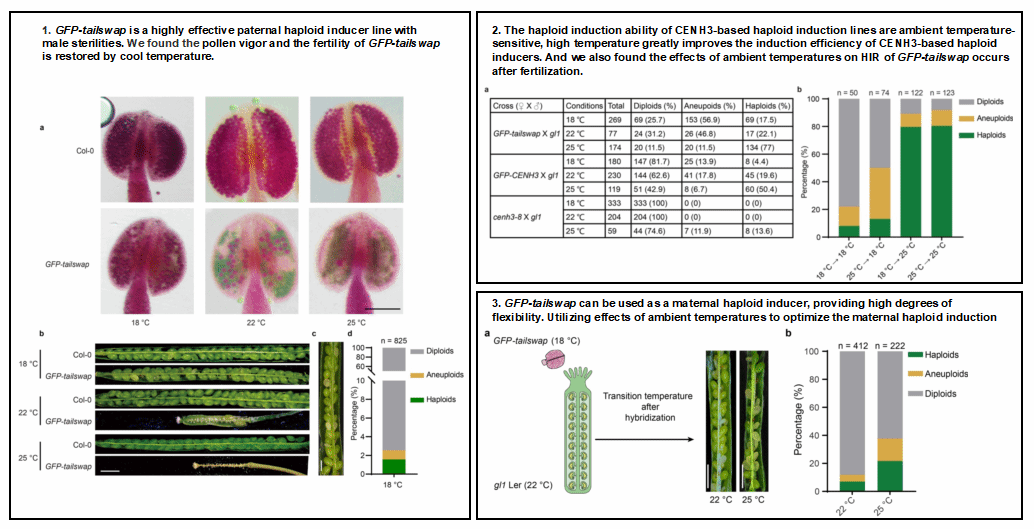
Abstract:
Haploid production by outcrossing with inducers is one of the key technologies to revolutionize breeding. A promising approach for developing haploid inducers is by manipulating centromere-specific histone H3 (CENH3/CENPA). GFP-tailswap, a CENH3-based inducer, induces paternal haploids at around 30% and maternal haploids at around 5%. However, male sterility of GFP-tailswap makes high-demand maternal haploid induction more challenging. Our study describes a simple and highly effective method for improving both directions of haploid production. Lower temperatures dramatically enhance pollen vigor but reduce haploid induction efficiency, while higher temperatures act oppositely. Importantly, the effects of temperatures on pollen vigor and on haploid induction efficiency are independent. These features enable us to easily induce maternal haploids at around 24.8% by using pollen of inducers grown at lower temperatures to pollinate target plants, followed by switching to high temperatures for haploid induction. Moreover, paternal haploid induction can be simplified and enhanced by growing the inducer at higher temperatures pre- and post-pollination. Our findings provide new clues for developing and using CENH3-based haploid inducers in crops.
全文链接:https://www.nature.com/articles/s41477-023-01389-x